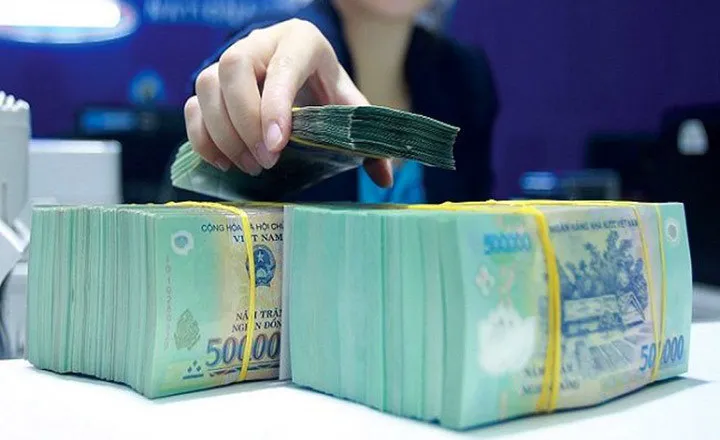
High Profits but Charter Capital Challenges
In the early days of January 2024, the Big 4 group, consisting of Vietcombank, VietinBank, Agribank, and BIDV, revealed their business results for 2023. Despite achieving significant profits, with Vietcombank setting a new record of VND 41,200 billion in profit before tax (PBT) and BIDV estimating consolidated PBT of over VND 27,400 billion, the banks continue to grapple with the challenge of increasing their charter capital. VietinBank also exceeded its profit targets, while Agribank projected a PBT of about VND 25,300-25,400 billion, signifying a 14.5-15% increase compared to 2022. In 2023, the Big 4 collectively contributed over VND 684,800 billion to the economy, equivalent to 41.9% of the increased credit balance of the entire economy.
Despite maintaining a leading position in terms of business results amid a challenging economic context, the Big 4 faces a significant issue concerning their charter capital. In 2023, the National Assembly approved a resolution for additional investment in Agribank's charter capital, with a maximum of VND 17,100 billion allocated for the period 2021-2023. However, this additional capital will only suffice for Agribank's credit growth until 2024. Looking ahead to 2025, Agribank anticipates the need for an additional VND 10,000 billion in charter capital to sustain a 10% growth in the credit balance.
During the 2024 Banking Tasks Deployment Conference, VietinBank Chairman of the Board of Directors, Trần Minh Bình, revealed that the State Bank of Vietnam and the Ministry of Finance had granted approval for the bank to retain all profits from 2022 to bolster capital through stock dividends. Building on this, VietinBank proposed an extension of this policy, seeking permission to retain all profits in 2023 for capital augmentation and advocating for the retention of annual profits from 2024 to 2028 (a five-year period) to fortify capital, enhance financial capabilities, and expand credit growth opportunities. Similar proposals had been put forth by leaders of the Big 4 banks in earlier conferences addressing banking tasks.
At the conference outlining Vietcombank's 2024 tasks, Phạm Quang Dũng, Deputy Governor of the State Bank of Vietnam, instructed the bank to promptly submit a plan for increasing charter capital from retained profits for the years 2021 to over VND 28,000 billion to the National Assembly during its upcoming session. Additionally, Vietcombank was urged to devise a strategy for capital augmentation using retained profits in 2022, minimizing reliance on private issuance to avoid diluting state ownership. The Deputy Governor stressed the urgency of this requirement, emphasizing that it is crucial for banks to secure resources for expansion, better addressing the needs of socio-economic development. Vietcombank was also tasked with collaborating with BIDV and VietinBank to propose alternative directions to the State Bank, the Government, and the Ministry of Finance.
Losing Ground in Charter Capital Race
In recent years, there has been a notable push among commercial banks to boost their charter capital. The State Bank of Vietnam has approved charter capital increases for 21 commercial banks in 2023, primarily sourced from the banks' equity, including retained profits and reserve funds, as well as capital sales to foreign strategic investors. For state-capitalized commercial banks, the State Bank has proposed additional capital for BIDV from the remaining post-tax profits, following the establishment of funds in 2021. Vietcombank and VietinBank have been directed to finalize plans for capital increase from the remaining post-tax profits after setting up funds in 2021.
Despite these efforts, the Big 4 banks have yet to meet expectations in terms of charter capital increase, falling behind joint-stock commercial banks in the charter capital rankings. Notably, VPBank officially became the bank with the largest charter capital in the system after the State Bank of Vietnam amended its establishment and operation license on November 28, 2022, to reflect a charter capital exceeding VND 67,434 billion. Subsequently, on November 14, 2023, VPBank received approval to increase its charter capital from VND 67,434 billion to VND 79,339 billion. In August 2023, MB Bank's charter capital also surged from VND 45,340 billion to VND 52,141 billion, surpassing the Big 4 and securing the second-highest charter capital position. Vietcombank regained its footing by issuing nearly 857 million shares, boosting its charter capital from VND 47,325 billion to VND 55,891 billion, reclaiming the second position in the charter capital ranking.
In the ongoing competition to boost charter capital, the Big 4 banks are anticipated to encounter significant challenges in reclaiming the top position. A key obstacle lies in the substantial ownership held by state shareholders within the Big 4 group, with full ownership at Agribank, 80.99% at BIDV, 64.46% at VietinBank, and 63.34% at Vietcombank. These state shareholders typically prefer cash dividends, urgently needed to offset the government's budget deficit. Conversely, banks believe that retaining these dividends will enhance equity, a critical foundation for expanding their operations. While the pressure to increase capital is substantial, the Big 4 Board of Directors lacks the authority to independently decide on the dividend distribution plan. Any capital increase proposal necessitates submission to the State Bank, the Ministry of Finance, the Government, and the National Assembly, subject to their approval. Moreover, this process must be repeated annually and adheres to a specific sequence.




















